MoD urged to restore Military Medal to WWI veteran's record
This article contains affiliate links. We may earn a small commission on items purchased through this article, but that does not affect our editorial judgement.
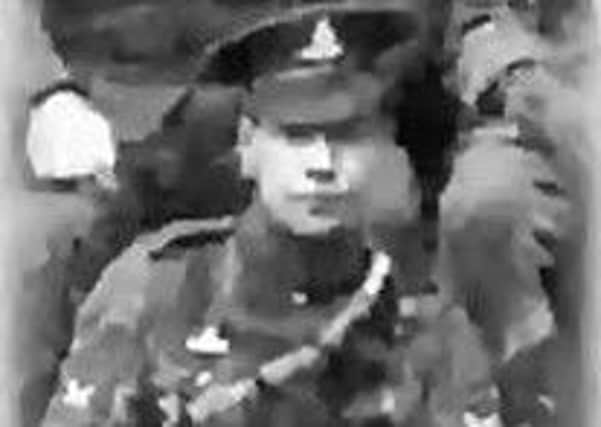

And to recognise his gallantry during the Battle of Cambrai in 1917, Robert “Bert” Brow was presented with the Military Medal by King George V.
But now the trooper’s son, Rob, has been left shocked after learning that official military records contain no reference to the medal. And with the prized possession lost, all that prevents Bert’s bravery from being lost from history are faded newspaper clippings and court circulars.
Advertisement
Hide AdAdvertisement
Hide AdDOWNLOAD THE EDINBURGH EVENING NEWS APP ON ITUNES OR GOOGLE PLAY
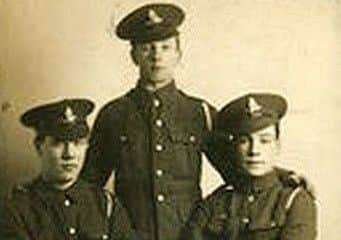

His family have been told the original documents may have been destroyed in the Blitz and that the file would not be changed even if proof was provided.
But Edinburgh-born Rob, 81, who now lives in Australia, has written to the Ministry of Defence calling for his father to be officially given the honour.
He said: “I can recall seeing the actual medal and a cutting from the Evening News with a picture of Robert Forsyth Brow of Comely Bank, Edinburgh, announcing that King George V had been pleased to award him the Military Medal for bravery in the field.
Advertisement
Hide AdAdvertisement
Hide Ad“But it seems that the powers that be do not acknowledge Bert’s Medal. My wife and I visited the Army Records at Kew in London. We asked to see Bert’s file, proudly informing the curator that he was a Military Medal winner. The curator then announced: ‘Oh, no. He was given the medal all servicemen received for just being part of the war’.”
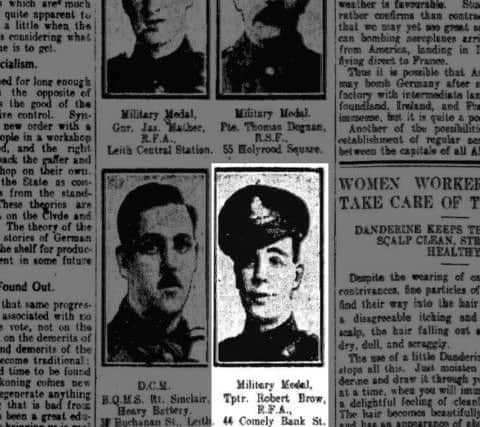

During the Battle of Cambrai, the first time tanks were used in significant force, casualties were high, with the Germans suffering losses of 50,000 and the British 45,000.
Like many 16-year-olds, Bert lied about his age when he signed up with the Royal Artillery, putting on hold is apprenticeship as a maritime engineer.
Rob said: “Although he would be embarrassed with all the fuss, his family want him to be recognised as a hero.
Advertisement
Hide AdAdvertisement
Hide Ad“He never talked to us much about the war – it was too traumatic for him. But it was at the Battle of Cambrai where he earned his Military Medal for carrying a wounded comrade across a battlefield to safety. Unfortunately, the other fellow received some bullets in the back and so Bert was carrying a dead boy. Mum said that he would have been given an even more important medal for his courage under fire if he hadn’t been such a lad. There is only one such medal and that’s the Victoria Cross.”
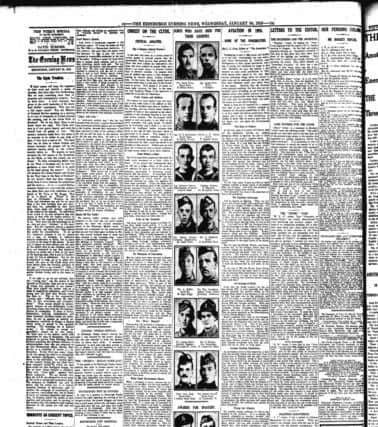

On another occasion, Bert was so sick of bully beef that he decided to acquire some eggs from a local farmhouse, only to discover a huge enemy cannon trained on their position.
He sprinted back to camp to tell the Captain, who promptly ordered it blown to smithereens.
After the gun was destroyed, quick-thinking Bert was rewarded with one of its components – a memento still cherished by the Brows.
”I have had it in my window much of my life,” said Rob.
Advertisement
Hide AdAdvertisement
Hide Ad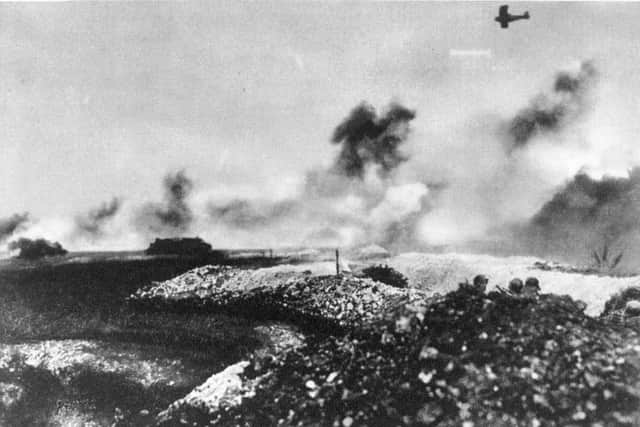

“It is my greatest treasure along with his patent leather dancing shoes and black top hat.”
Tory MSP Jeremy Balfour urged the MoD to amend their records to recognise Bert Brow’s gallantry. He said: “Clearly his family have evidence and the records need to be amended so all that he did is recognised. History is a very important thing and not to have that down officially is a real disappointment. If the records are not amended I would be happy to take up this campaign.”
Nigel Bagshaw, Green councillor for the ward, added: “We are in the midst of the 100th anniversary of the First World War just now, of course, when we remember feats of extraordinary bravery at times of unimaginable carnage. The evidence seems pretty strong that Mr Brow was indeed recognised for his bravery and it is clearly very important to his family that this is not forgotten.”
Following the war – in the midst of the Depression – Bert became a chauffeur for McEwan-Younger brewers.
Advertisement
Hide AdAdvertisement
Hide AdIn the mid-1930s he lived close to the new Murrayfield Stadium and, following the outbreak of the Second World War, worked building tanks for the Allies. After the war, he ran a taxi and moved into limousine hire before the family emigrated to Australia.
The Ministry of Defence was unavailable for comment.